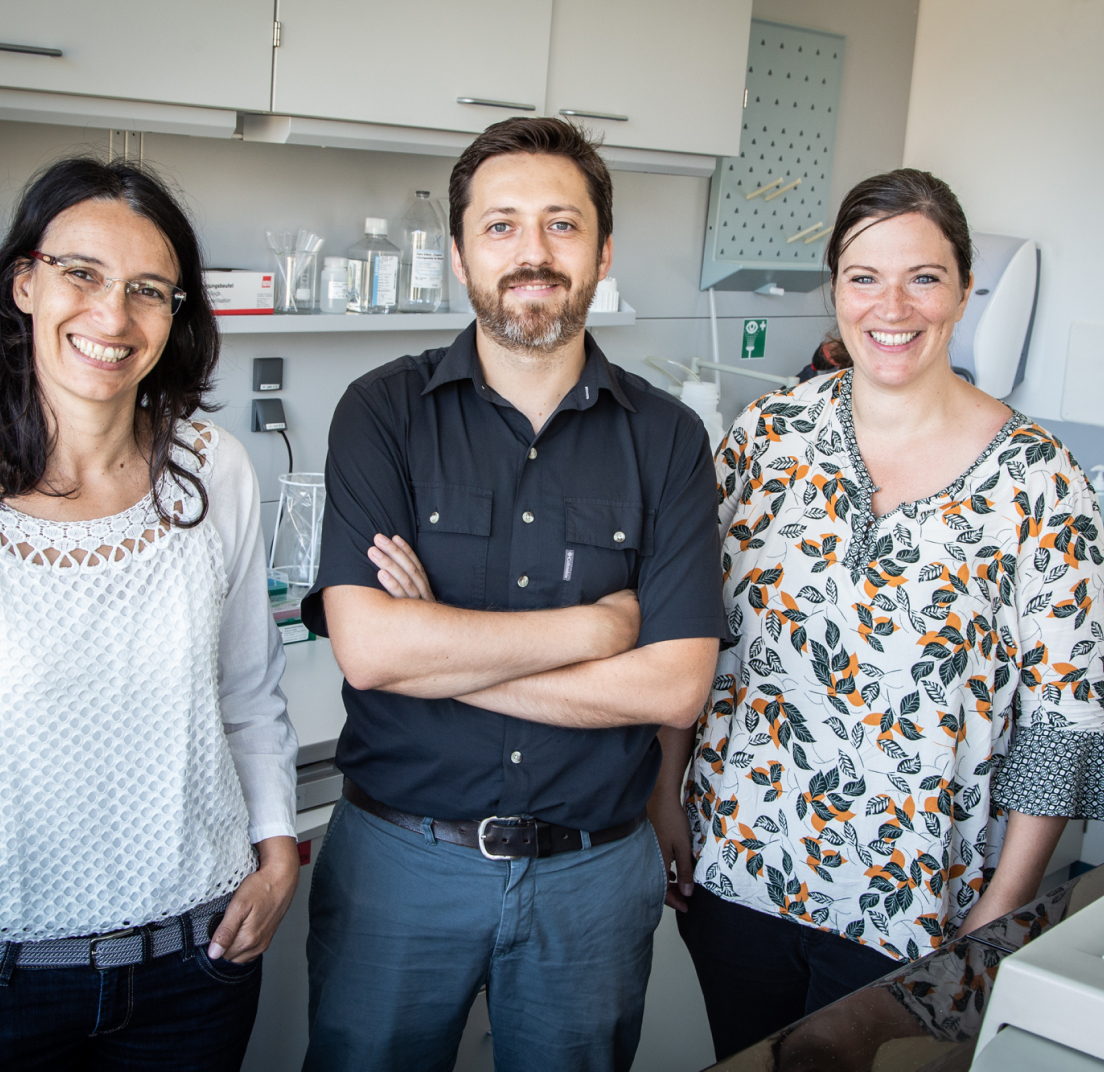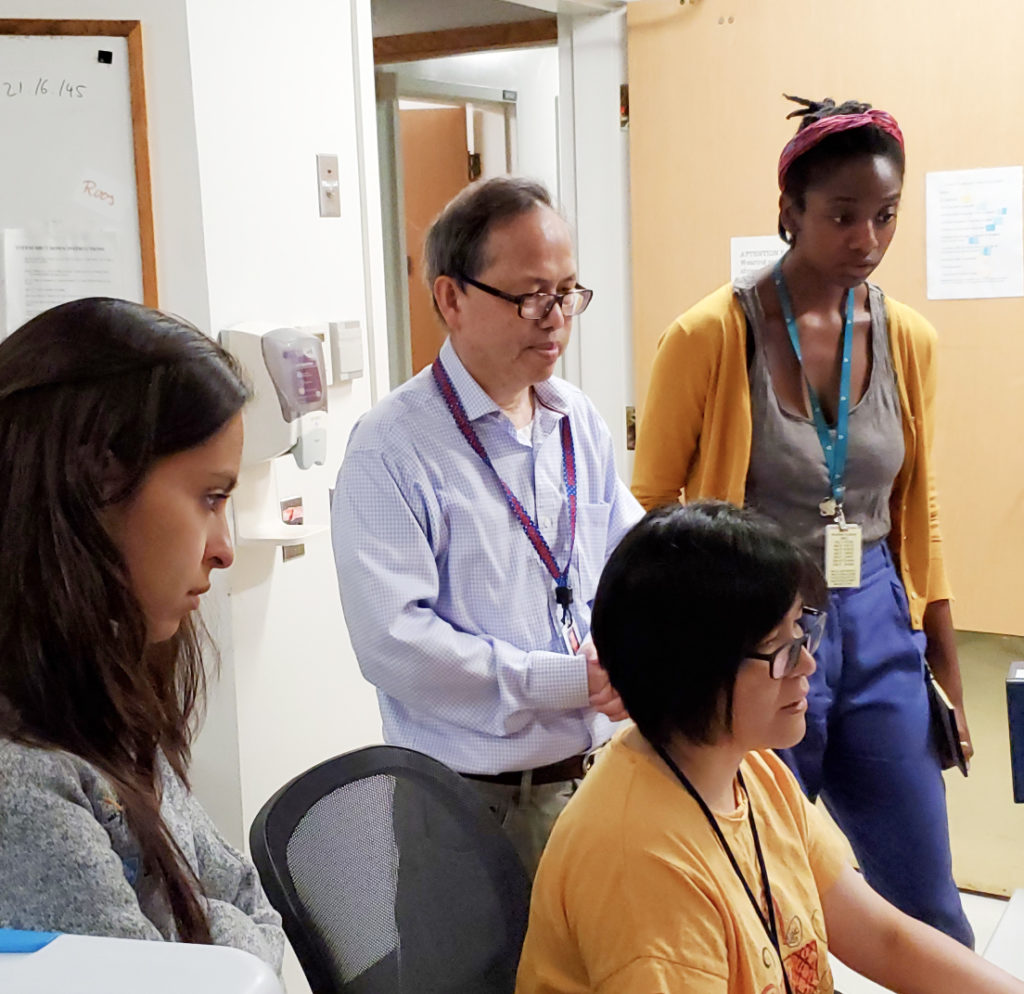“Extracellular vesicles from ME/CFS Patients and their effect on human mast cells and microglia mediators secretion”
PI: Professor Theoharis Theoharides, MD, PhD
Tufts University
“Extracellular vesicles from ME/CFS Patients and their effect on human mast cells and microglia mediators secretion”
PI: Professor Theoharis Theoharides, MD, PhD
Tufts University

Theoharis Theoharides’ (MD, PhD) project is focused on the idea that mast cells and microglia (neuroimmune cells) provoke neuroinflammation in ME/CFS patients. In a 2018 paper, Dr. Theoharides and Eirini (Irene) Tsilioni (PhD), a research associate at Tufts University, outlined the hypothesis that mast cells in the hypothalamus, triggered by environmental, neuroimmune, pathogenic or stress, activate microglia cells and disrupt normal homeostasis. To evaluate this proposed mechanism, Drs. Theoharides and Tsilioni will use an innovative approach of examining the contents of extracellular vesicles (membrane-surrounded structures more recently understood to be involved in cell signaling). This study has the potential to bring novel insight to a promising area of research that has only been explored preliminarily.
Major Ramsay goals fulfilled:
✓ Bringing new researchers into the field. The Ramsay Awards enabled Dr. Theoharides, an experienced investigator, to initiate original research into ME/CFS.
“We are very grateful and proud to receive this award from Solve ME/CFS Initiative. This is the first time that extracellular vesicles from ME/CFS patients and some of their key contents will be characterized and studied for their effect on human mast cells and microglia. We anticipate that our results will identify a potential new pathogenetic mechanism that could also be used to monitor disease activity and serve as target for the development of effective therapies for ME/CFS.” -Dr. Theoharides
Read the research team’s study abstract below:
Myalgic Encephalomyelitis/Chronic Fatigue Syndrome (ME/CFS) affects about 1-2% of the US population with a 4 to 1, female to male ratio, and is characterized by debilitating fatigue of six months in the absence of systemic diseases. Many ME/CFS patients also have Fibromyalgia Syndrome (FMS), Mast Cell Activation Syndrome (MCAS), Pelvic Bladder Syndrome/Interstitial Cystitis (PBS/IC) and Irritable Bowel Syndrome (IBS), which worsen with stress. Unfortunately, ME/CFS pathogenesis remains unknown and there are no objective biomarkers making accurate diagnosis, prognosis and effective treatment difficult.
Neuroinflammation may be involved in ME/CFS, but the neuroimmunoendocrine interactions are still unknown. Mast cells (MC) act as sensors of environmental and psychological stress and have been implicated in all diseases that are comorbid with ME/CFS. There are increased skin MC in patients with ME/CFS, and such patients also show increased skin hypersensitivity. Moreover, there is hyper-responsiveness in the bronchi of ME/CFS patients, implying MC activation. A recent study reported a strong association of atopy with ME/CFS, especially with severity of symptoms. Another recent study showed increased circulating MC precursors in the blood of ME/CFS patients. MC are located perivascularly in close proximity to neurons, especially in the hypothalamus, where they can be stimulated by CRH and act as sensors of environmental and psychological stress, secreting danger signals. Many ME/CFS patients demonstrate abnormal hypothalamic-pituitary-adrenal (HPA) axis activity and stress worsens most symptoms. The neuropeptides corticotropin-releasing hormone (CRH), neurotensin (NT) and substance P (SP) are secreted under stress and can stimulate MC to release mediators that could contribute to ME/CFS symptoms directly or via activation of microglia. We reported that CRH, SP and the SP-structurally related peptide hemokinin-1 (HK-1), as well as the inflammatory cytokines IL-6 and TNF, were significantly elevated in the serum of FMS patients compared with healthy controls, implicating neuroinflammation.
Stimulation and proliferation of microglia is considered important for innate immunity of the brain and in the pathogenesis of neuroinflammatory diseases. Microglia express NT receptors, CRH receptors, as well as Toll-like receptors (TLRs). We previously showed that NT stimulates human cultured microglia to release the proinflammatory cytokine IL-1β and the chemokines IL-8, CCL2 and CCL5, molecules that could contribute to local inflammation in the hypothalamus. We also showed that a viral-like trigger, administered together with acute forced swim stress, decreased locomotor activity and increased inflammatory molecule expression in the brain and skin of C57BL/C female mice, with accompanying increased levels in the serum of TNF, IL-6, KC (Cxcl1, IL-8 murine homolog), as well as the chemokines CCL2, CCL4 and CCL5. Microglia interactions with MC are now considered important in inflammation of the brain. Stimulated MC could secrete a number of mediators that could contribute to the pathogenesis of ME/CFS. These include chemokines and cytokines, as well as CRH, NT, SP and mitochondrial DNA (mtDNA), which could act as an “innate pathogen” leading to a localized auto-inflammatory response in the hypothalamus. Extracellular mtDNA could be protected from degradation if it were to be transported inside extracellular vesicles (EVs) that are secreted in blood or other biological fluids by diverse cell types, including MC, and could cross the blood-brain-barrier or reach the brain through lymphatics. EVs are generated from the plasma membrane and can be isolated from serum, plasma, urine and other biological fluids. EVs have been shown to contain RNA, DNA, lipids or proteins that are delivered to other cell types, and have been implicated in autoimmune and brain disorders; however, their presence in ME/CFS has not been investigated.



350 N Glendale Ave.
Suite B #368
Glendale, CA 91206
SolveCFS@SolveCFS.org
704-364-0016
| Cookie | Duration | Description |
|---|---|---|
| cookielawinfo-checkbox-analytics | 11 months | This cookie is set by GDPR Cookie Consent plugin. The cookie is used to store the user consent for the cookies in the category "Analytics". |
| cookielawinfo-checkbox-functional | 11 months | The cookie is set by GDPR cookie consent to record the user consent for the cookies in the category "Functional". |
| cookielawinfo-checkbox-necessary | 11 months | This cookie is set by GDPR Cookie Consent plugin. The cookies is used to store the user consent for the cookies in the category "Necessary". |
| cookielawinfo-checkbox-others | 11 months | This cookie is set by GDPR Cookie Consent plugin. The cookie is used to store the user consent for the cookies in the category "Other. |
| cookielawinfo-checkbox-performance | 11 months | This cookie is set by GDPR Cookie Consent plugin. The cookie is used to store the user consent for the cookies in the category "Performance". |
| viewed_cookie_policy | 11 months | The cookie is set by the GDPR Cookie Consent plugin and is used to store whether or not user has consented to the use of cookies. It does not store any personal data. |
Please let us know more about you.
Please let us know more about you.
Please let us know more about you.